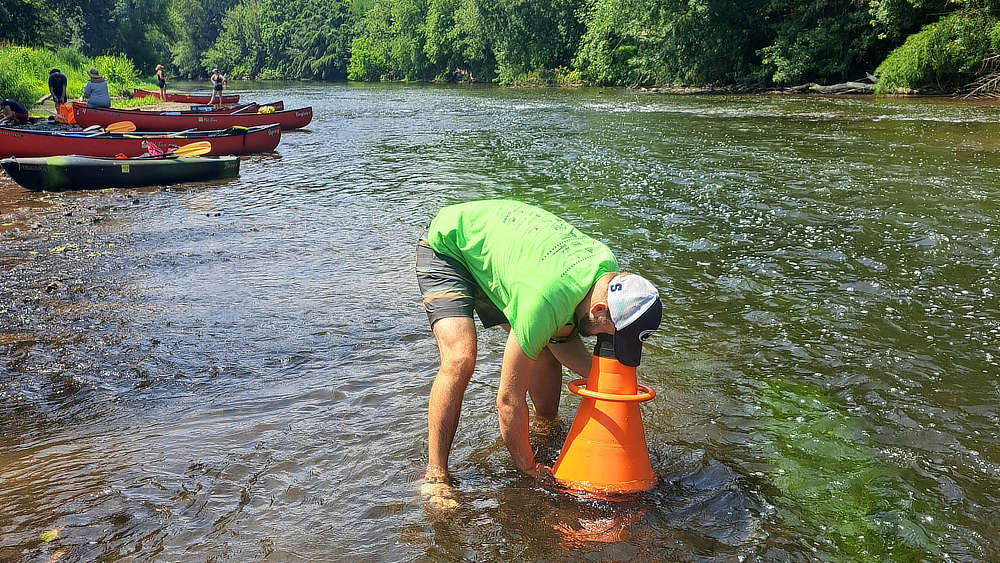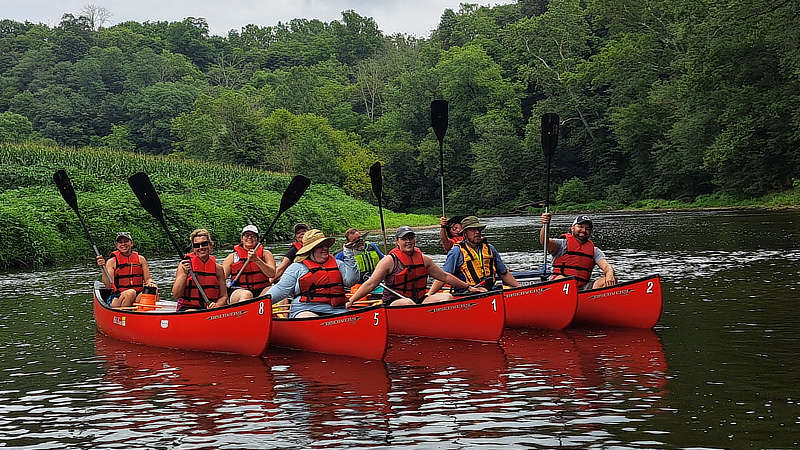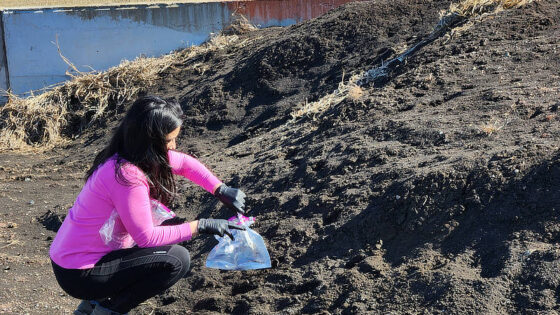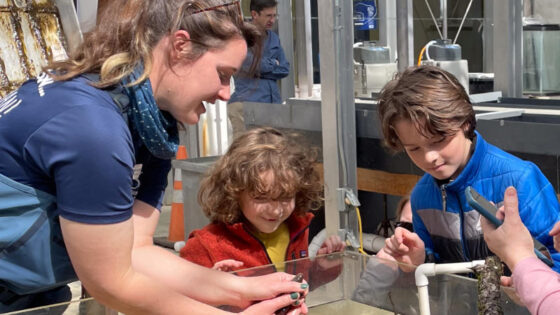

By Kathryn Metzker and Steve Kerlin, Ph.D.
Ten K–12 teachers took to the water in July, joining Stroud Water Research Center’s Director of Education Steve Kerlin, Ph.D., (also an adjunct at Millersville University) and education staff for an intensive weeklong course on the Conestoga River. From macroinvertebrates to chemistry to habitat studies, teachers learned about methods to study stream health and how to lead outdoor stream studies. Assistant Director of Education Tara Muenz introduced the group to macroinvertebrate sampling methods, highlighting the Leaf Pack Network, to learn more about these animals and stream health.

Navigating Downriver
Joined on the river by Education Programs Manager Kathryn Metzker, the group made observations about the condition of the river as they navigated areas of riffles. They practiced teamwork and perseverance during three days of canoeing from Lancaster County Central Park to the Susquehanna. They packed up study materials in waterproof bags, securing them to the canoe in case of unexpected turbulence. Following ospreys, herons, and bald eagles down the stream, these teachers got to experience Lancaster from a unique perspective.

Sacred Carvings
To add historical context to this program and river, the group met with Paul Nevin, a local expert on Indigenous petroglyphs in the Susquehanna River. At the meeting point of land, water, and sky, these sacred carvings were made in the rocks in the Susquehanna near what is now Safe Harbor Park and are part of “what is likely the largest concentration of ancient Native American rock art sites in the eastern United States,” says Nevin.
Standing in the water at the bank that’s rising due to dam releases, teachers accomplished what they hope to bring to their students — connection with nature.
Taking Action
The group’s final assignment was to create a Meaningful Watershed Educational Experience suited to their students and location. Teachers practiced MWEE elements while on the river, like examining combined sewer overflows and considering their impact on the river.
Todd Roy from the Conestoga River Club joined the team for a day and offered local context, sharing the rich history of the area and discussing local action projects that the club leads to raise awareness and keep the river clean. Stroud Center educators led a session on mussels and their crucial role in riverine ecosystems.
Read more about this course from Lancaster Online.



